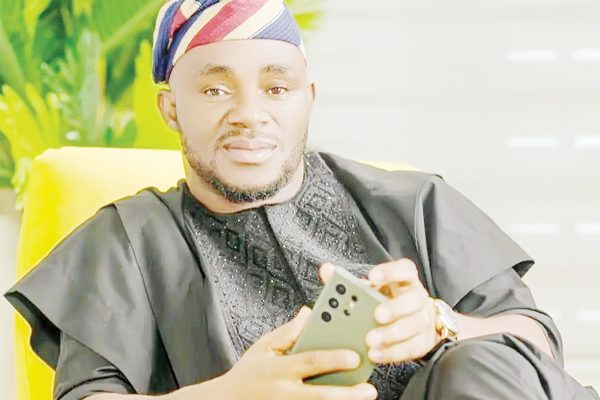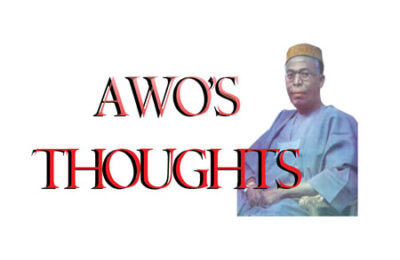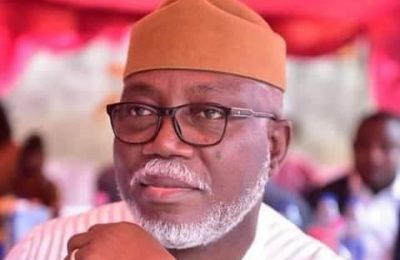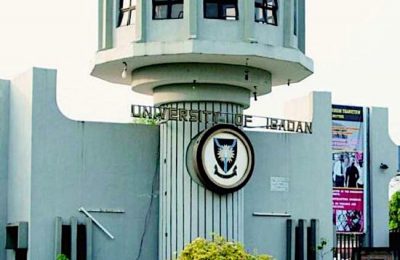Kayode Adamolekun is a miner and an explosives expert. In this interview with TUNDE AYANDA, the Ekiti State-born philanthropist, who operates the Kayode Adamolekun Foundation, speaks about the recent bomb explosion in Ibadan, Oyo State, and how to win the war against illegal mining in Nigeria.
You were recently named one of Nigeria’s ‘100 Most Inspirational Men’. How do you feel about that?
I need to be very honest. I appreciate it and I am happy, but at the same time, I still see myself far away from that milestone and that’s the reality. I always see achievements as a call to do more and be intentional about your growth. When I looked at the list, I felt flattered, but it gave me hope.

What brought about the choice of mining as your profession?
I grew up in Ekiti and because of the environment we grew up in and the restricted access to civilization, there was nothing like career counseling. I didn’t hear anything like that in primary and secondary schools.
We were like sheep without shepherds. But when I wanted to make a choice after leaving secondary school, I asked people what they thought I could do, and they thought I could go into building, so I wanted to be a structural engineer. At the Federal Polytechnic, Ado-Ekiti, I filled in building technology, but when I got in, my big uncle, who was the registrar of the school, felt I should study mining. I told him I didn’t know anything about that. He told me his friend was the HOD and he took me to the mining department and changed my course. That was how I ended up studying mining and there has never been any regret.

There was a recent explosion in Ibadan that was linked to the activities of some illegal miners. As an expert in mining and explosives, how did you feel when you first heard the news?
When I heard about the explosion, I was not in Ibadan. Later, I heard that it was a gas explosion and I felt, ‘what a disaster!’ But when the story went further and it was discovered to be an explosion from the storage of explosives in a residential area, I felt terribly bad.
This is not something that should happen in this day and age. We are all screaming that the country is bad, but the reality is that we all have roles to play in making the country better. Most of the things we do as individuals are not pointing in the direction that we want a better Nigeria. In Europe and other advanced countries, everything is regulated. The present administration is trying to regulate things and I pray that they succeed.
For us to have a sane environment, we need to be ready to lose some things and gain a lot more. It (the explosion) shouldn’t have happened and the saddest thing is that it happened in an environment where we have the elites. Let’s start by asking questions: who brought these foreigners into this country? How coordinated are their activities? There is something we call land reclamation in mining. When you mine a particular place for resources, you are meant to reclaim the land. It is in our law, but who is obeying the law?
The problem in Nigeria is not a lack of law, but implementation. The explosion was an unfortunate incident that I don’t like talking about. My team wanted to put up a publication about it, but on more than two or three occasions, I had to stop it because it was an emotional blow to me, being a professional in that field. Mining is a field that is guided by so many laws, but it is sad that the lawlessness that has characterised the entire country still finds its way. It’s not strange that such a thing could be happening. It is happening in every sector, not only in mining. So, we should ask: where are our laws? Who are the people implementing it? When someone is coming into the mining sector, what are the procedures? A lot of things actually went wrong, but I think we’ve learnt our lessons and I think there shouldn’t be a repeat of such.
How true is the allegation that some traditional rulers are aiding illegal mining?
Sometimes to bring a reform in any sector is not easy. Mining activity is not supposed to take the shape of, ‘this is my father’s land, let me go and mine it’. It is the exclusive right of the Federal Government to coordinate such activity. What you call illegal is what I find difficult to believe is illegal. You just mentioned the part of the traditional rulers. There is no traditional ruler that will say he is not aware of mining activities in his domain, whether legal or illegal. If you follow up on the story, you will realise that every traditional ruler now wants to be active in mining. In fact, it is becoming a tussle; people fight themselves to become the baales and heads of these regions because they have realised the benefits. Once you become the baale, everybody coming to do anything in your locality must come to you. They don’t care anymore what happens to their lands and their people because of the monetary gains coming to them. All they want is the money and that is the reason why the government has to be intentional.
There was a particular ruler that was suspended in Oyo State because of his relationship with illegal miners, but we have to go beyond the suspension stage and follow the laws, understand the penalty and follow it to the letter. We have a lot to gain when we realise these people coming through the back door into our country to cart away our resources are not doing us any good. You can’t go into their countries and try ordinary farming. There are lots of laws and procedures. I pray that the clampdown on illegal mining succeeds. When this is regulated, that is when we make more money that will benefit all of us.
Let’s talk about the Kayode Adamolekun Foundation. What is the motive?
The foundation started over 10 years ago. My intention is simple. I realised there are many things I would have achieved as an individual, but I couldn’t achieve them because of my limitation. I have made up my mind that people around me won’t have to go through what I went through and that is the reason why we have set it up. The foundation was initially solely operated by me, sharing the little I had, it is an avenue to spread love and appreciate others. We give support in the area of education. Now we are focusing on a campaign against drugs and substance abuse which has become a big issue among our youths.
Does this have political undertone?
Absolutely not. The foundation has evolved from what we thought it could be. It started from us paying visits to orphanages to render support, but now it has evolved beyond what we planned. People think that when you are making a good statement, it has to come with political interest. I am not a politician and I don’t intend becoming one. But if the political space becomes good enough for good people to come in, if politics becomes an avenue where we can broaden the scope and accommodate more people, I will not say no. But now, I am not looking in that direction. For now I am trying to help others. I don’t belong to any political party. I don’t have any card and I am not planning to have one. I have friends who are politicians and I respect their choices, but our foundation is neither profit-making nor political.
You claimed that you don’t want people around you to experience what you experienced growing up. What was your growing up like?
You know sometimes when you are not exposed to the other side of life, you will not be able to compare. I grew up in a village where in the first 15 years of my life, I did not leave my community. I grew up in Aisegba-Ekiti. It was fun. My father was a farmer, so it was the usual farming practice, go to the farm in the morning, come back early to prepare for school and go back to the farm in the evening.
You could not be in my father’s house and not go to the farm. It was when I had the opportunity to visit other places and see what other children were exposed to that I knew we had been in the dark. We trekked several kilometers to the farm. We trekked to school. We were taught mathematics in Ekiti language. We learnt English in Ekiti language, so how do you expect me to speak fluently in English language?
Until recently when I provided laptops to my alma mater, someone that was going to do a CBT did not know what a computer looked like. Rather than tell my stories, I would translate those into making sure I give people opportunities with my resources and resources of friends all over the world.
Let me tell you a story. When I was preparing to go to higher institution, my entire ambition was to become a ‘kegitte’. I loved their singing and acts. But when I got to school, I discovered there was much more to life. Thank God I met people that reshaped my thoughts and today, I have no regret.
You look fit. How do keep this up?
I loved playing football while growing up until I had a life-threatening injury on my leg which I didn’t sustain on the pitch. I lost interest. I have a gym at home and a swimming pool but I can’t remember the last time I went to the gym or swam. I think what helps is my restlessness. I am always active. My job is not in the office, so I drive, walk long distances, and climb. Mining is about climbing mountains and hills and I think these contribute to my fitness. I also play golf.
You also have interest in farming, pharmaceuticals and supply of exotic drinks. How do you fuse all these with your work as a miner?
My background shaped my life. Most of my businesses are ideas I got through reading and deep thinking. Again, I am blessed with committed members of staff. I gave my best to people and they give it back to me.
For someone who had little growing up, what does money mean to you?
I don’t allow money to control me. I see it as a gift to help and lift others. In everything I do, I believe it is God that shows mercy because truly, the race is not for the swift.
ALSO READ: Eniola Badmus bags appointment as SA to Reps Speaker, Abass







